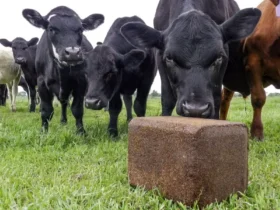Betta fish, also known as Siamese fighting fish, are popular pets known for their vibrant colors and beautiful fins. Like all animals, betta fish require a proper diet to maintain their health and well-being. You are unable to feed your betta fish, such as when you are away on vacation or during a power outage.
It is important to understand how long betta fish can go without eating to ensure their survival and prevent any negative health effects.
Feeding habits of betta fish
Feeding habits of betta fish is crucial in determining how long they can go without eating. In the wild, betta fish are carnivorous and their diet consists mainly of small insects and larvae.
In a home aquarium, betta fish are typically fed a diet of specialized betta fish pellets or flakes. These pellets are specifically formulated to provide the necessary nutrients for betta fish.
It is important to establish a feeding schedule for your betta fish and stick to it. Overfeeding can lead to digestive issues, while underfeeding can result in malnutrition.
Factors influencing the duration betta fish
While betta fish can typically go up to two weeks without food, several factors can influence the duration they can sustain without eating. One factor is the overall health and age of the fish. Healthy, younger fish generally have more energy reserves and can withstand longer periods without food compared to older or weakened fish.
The temperature of the water also plays a significant role in the betta fish’s metabolic rate. In warmer water, their metabolism speeds up, requiring them to eat more frequently.
It is important to consider these factors and make adjustments accordingly when establishing a feeding schedule for your betta fish. By monitoring their overall health, water temperature, and activity level, you can ensure they are receiving the right amount of food to thrive.
The ideal feeding schedule for betta fish
Now that we understand the factors that influence how long betta fish can go without eating, it’s important to establish an ideal feeding schedule for these beautiful creatures. While betta fish are known for their ability to survive in less than ideal conditions.
A general rule of thumb is to feed your betta fish once or twice a day. This allows them to consume enough food without overeating, which can lead to digestive issues.
It is recommended to use high-quality fish food specifically formulated for betta fish. These pellets or flakes are designed to meet their nutritional needs and promote their vibrant colors and overall vitality. Avoid feeding them excessive amounts of live or frozen foods.
Consistency is key when it comes to feeding betta fish. Establish a regular feeding schedule and try to stick to it as much as possible. This will not only help their digestion but also allow you to monitor their appetite and overall health.
Signs of malnutrition and hunger
Ensuring that your betta fish is getting proper nutrition is essential in maintaining their health and wellbeing. However, there may be instances where you notice signs of malnutrition or a hunger strike in your fish.
One common sign to look out for is a decrease in appetite. If you observe that your betta fish is refusing to eat or is eating significantly less than usual, this may indicate that they are not receiving enough nutrients. In such cases, it is important to assess your feeding routine and make any necessary adjustments.
Another sign of malnutrition is weight loss or a noticeable decrease in body condition. If your betta fish appears thin or emaciated, it may be a clear indication of inadequate nutrition. This can be accompanied by a loss of color or a dull appearance in their scales.
Betta fish that are malnourished may exhibit lethargy, a lack of energy, or decreased activity levels. If your fish is spending more time resting at the bottom of the tank or appears less active than usual.









Hello!! My name is Jeanine
I love to eat, travel, and eat some more! I am married to the man of my dreams and have a beautiful little girl whose smiles can brighten anyone’s day!